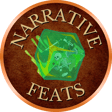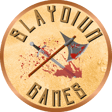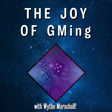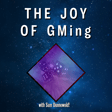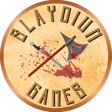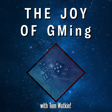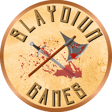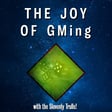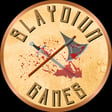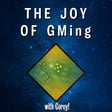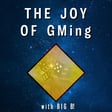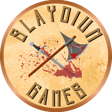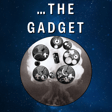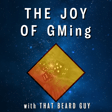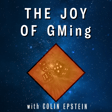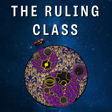Become a Creator today!Start creating today - Share your story with the world!
Start for free
00:00:00
00:00:01

The Joy of GMing - with Special Guest Ryan Blake
Welcome to the sister-series to Anywhere But Now— our Doctor Who Actual Play Podcast! Our special guest today is Ryan Blake! Host of the Doctor Who podcast, Wibbly Wobbly Dicey Wicey!
Join us as we talk about different Doctor Who TTRPGs over the years, origins behind the Doctoral Program, and creating character voices!
Eps will be released between mods or episodes with our ongoing, serialized show. We’ll cover some making-of and behind the scenes tidbits of our latest mod as well, so do stick around, with host Casey Jones!
Be sure to subscribe and leave a comment, and follow us on Twitter for more updates. Send your questions to AnywhereButNowPodcast@gmail.com!
Music by Tabletop Audio
Theme by RJ Pirchinello
Transcript
The Enchantment of Adventure Stories
00:00:13
Speaker
you
00:00:35
Speaker
Whether you're at a game table, in your comfiest chair reading a book, or listening at home, there's nothing like a great adventure story. But they don't happen by accident.
Introduction to Joy of GMing
00:00:44
Speaker
Welcome to the Joy of GMing, a special interview series on the craft of great gaming. There's just something magic about sitting down to a good table with great friends, isn't there? If you're a lifelong gamer or a newbie rolling up your first character sheet, if you're a DM or a GM or just can't get enough table talk in your day, this is the show for you. Each episode will bring you amazing guest speakers to talk about writing games and running them,
00:01:08
Speaker
building fantastic worlds and compelling story art, and oh so useful tricks at the trade. Hear some amazing stories, get inspired for your next game, and join us for an hour or so of lively conversation.
Casey Jones on Tabletop Gaming
00:01:22
Speaker
I'm Casey Jones, writer and voice actor. Over the last dozen years, I've written and produced screenplays, children's animation for TV and film, graphic novels, stage plays, murder mysteries, and audio adventures. I've also been writing and running tabletop games for over 10 years.
00:01:39
Speaker
Join me as we dive deep into creativity with fellow experts in making stuff up. This sister series to anywhere but now, our Doctor Who actual play podcast, will be released between mods or episodes with our ongoing serialized show. We'll cover some making of and behind the scenes tidbits of our latest mod as well, so do stick around.
00:01:59
Speaker
And now, our special guest today is Ryan Blake, host of Wibbly Wobbly Dicey Wicy, the Doctor Who RPG Podcast. Welcome, Ryan. It's nice to have you here. It's lovely to be here. It's lovely to be here.
00:02:14
Speaker
Ryan, I understand you've run games in Doctor Who and Star Trek with icons, Electric Bastion Land, Blade Runner, and even Rocket Age. And I wanted to ask you, Ryan, what keeps you coming back to sci-fi games again and again?
Ryan Blake's RPG Journey
00:02:30
Speaker
So I didn't come to role-playing through the usual Dungeons and Dragons route. I actually came to it because I discovered
00:02:42
Speaker
My first ever game was DC Hero's first edition. Yeah, and I'm a huge lifelong superhero fan, completely in parallel with my being a science fiction fan. So as you sort of said in your introduction, the idea of being able to create something in a universe you love,
00:03:01
Speaker
that was so compelling to me and I just instantly thought like when you're a GM it's all about what if what if x meets y what if the characters do x and causes y to happen and then they choose z and then x and things like that so when you're and so I was familiar with most of the science fiction universities that were available to me and obviously I'm English as you can probably tell from my voice so Dr Who was part of my childhood
00:03:29
Speaker
Like I said, the idea of contributing something to the rich tapestry of that universe was something it was like, yes, please. Absolutely. So yeah, so that's how I came to it. The order I sort of went in was DC Heroes, Star Wars D6,
00:03:47
Speaker
some phase rip. There were some previous versions of the Doctor Who role-playing game. They were distinct in their approach, let's put it that way. And then of course Star Trek, well for me about three or four different flavours of system. And now of course Doctor Who has just recently had its first ever
00:04:05
Speaker
Second edition proper.
Doctor Who RPG Evolution
00:04:07
Speaker
Yes, I am super excited about the second edition. I was a little skeptical of it at the very beginning of like, well, it wasn't broke, why did they fix it? But I was immediately turned around by the removal of traits and the addition of distinctions and those short-term, long-term goals of the characters.
00:04:32
Speaker
have really changed the the elegance of the game because beyond whatever the goal of the mod might be, your characters still have their own driving goals of what they're trying to do with their version of events.
00:04:49
Speaker
And it's made it a lot easier not only to keep in mind what the players want for their characters. Okay, I've got these PCs to work with and here are their primary goals. How do I weave that into the next adventure we're playing today?
00:05:03
Speaker
Yeah, that's a very handy feature for GMs. I should add at this point, just not by way of a plug, but just for clarity, that Anywhere But Now is an actual play podcast and a really lovely one. Oh, thank you. Wibbly Wobbly Dice Lycie is about the system and about settings, analyzing things. So it's interesting. I think we come to it from two different perspectives, podcast-wise anyway.
House Rules in RPGs
00:05:29
Speaker
But yes, the second edition, I was very much like you in that I didn't think the system was broken. It needed clarity in certain areas and the traits thing had grown a little bit out of control. It was cumbersome. Like the number of details that would apply to a given character that they hadn't actually paid for with experience points could get a little out of hand.
00:05:53
Speaker
Yeah, so I really wanted to pick your brains on this. Regarding the whole traits distinction thing, only extraordinary kind of non-human things get turned into distinctions. Whereas before traits, you could have character elements that were just about your personality that had a statistical effect on the game.
00:06:15
Speaker
And now, anything to do with your character like that. For example, Amy and Rory have it for each other. True partners. Yeah, there's a trait that they have to describe their relationship. And that will give them a bonus. You know what? I've seen various different versions of those characters, so you're probably right. Whereas before, in the game, with first edition, you would have... If Amy and Rory did something that related to their relationship, the trait would confer a bonus.
00:06:43
Speaker
Now, essentially, that just becomes part of the role playing element. So if your characters just role play something in the game is relevant to their relationship, the GM just gives a bonus anyway, because it's good role playing. For our table, because house rules are a thing, you know, whatever table you're going to go to, the GM there or the DM there have their own
00:07:06
Speaker
flavor they like to put on things. For instance, one of our house rules is that in addition to double sixes meaning it could not have gone better, double snake eyes meaning it could not have gone worse, double threes at our table mean you got the averages average to ever average. It gives players a chance of accomplishing something tricky that might ordinarily be out of their wheelhouse
00:07:30
Speaker
You know, it's like, oh, I barely managed to make that work the way it is intended to work. Okay, good for me. But it also just adds a little bit of extra flavor of like, okay, here is your chocolate double scoop, here is your mint chocolate chip, and oh, you get a nice scoop of vanilla as a palate cleanser.
00:07:50
Speaker
So how would you, your character is trying to break through the Dalek firewall using the Tyler's computer and they roll double threes. So what's the average result would be? Okay, so one of the beautiful things about the second edition are the ones in the sixes that elevated it from okay, you have succeeded to okay, you have succeeded, but this little extra bit went wrong. Or okay, you succeeded and you got this extra bit right.
00:08:20
Speaker
So you've got yes buts and no buts and yes ands and no ands. With the averages average, you don't get anything at all. If you had a Time Lord on the TARDIS trying to hack into a Dalek computer, and they got the averages average, they might be able to read the information, but not necessarily update it. They might have gotten in without being detected. You know, there aren't like they get no bonuses, they get no penalties.
00:08:45
Speaker
but it still gives them the chance to push the story forward in a way that leaves a vacuum for some of that creativity to pick up in the next beats, you know? No, yeah, I see that. I think there's some definite utilities there.
Improv and RPGs
00:09:00
Speaker
And I do know, having spoken to Dave Chapman of a cubicle server a few times, he said he's very much in favor of people having house rules. He's got no money.
00:09:10
Speaker
Dave Chapman being the guy who created the system he said yeah house rules are you know absolutely wonderful he kind of appreciates them so yeah yeah exactly and and the funny thing is um i mean you're an actor you'd appreciate this more than a lot of people the way the the system is set up with the no but yes but yes and
00:09:30
Speaker
It's very similar to the rules of improv anyway. I mean, essentially, that's the core rule of improv, isn't it? Yes, and is such a powerful piece of the engine. It's the gas in the engine that helps get it going. And we'll talk about yes and in a minute. But the no but also is that same kind of creativity. Because what I've learned firsthand with our Time Lord, the Fixer, played by the wonderful Brandon Sorio,
00:09:55
Speaker
Brand's roles are not historically very high. There are a lot of ones in the numbers. And we have learned firsthand that low roles can lead to high adventure because with those disastrous roles and with those no, but here's the thing and like, oh, no, and it's going to be that little bit harder because now you've got people following you and tilting their heads and curiosity what you're doing behind the security checkpoint. The more adversity that we can just ratchet up little by little as we go helps contribute to that ongoing tension.
00:10:25
Speaker
Yeah, no, I say the wisdom of that. On the subject of distinctions, like with Rory and Amy's true partnership or true pairing, having a distinction for our house, it does add an extra two to the role. Recently, we had a character face off against a man in a dog mascot costume on part one of The Wages of Joy. Yep, yep.
00:10:51
Speaker
The dog in the costume has been effectively brainwashed, so the person in the costume thinks he's a dog. And when he is told by one of our players to sit, bad dog, the character Maeve is able to point out is like, actually, yeah, I grew up around dogs.
00:11:08
Speaker
As it was pointed out in this previous bit, I'm like, that's a valid point. They know how to talk to dogs to get them to behave. And it influenced the role. It didn't completely change the outcome, but it did give them a little extra chance of making the results handcrafted, custom tailored to their character's experience, you know?
00:11:29
Speaker
Something I've learned with other GMs, especially like Jacob Cordes, our last guest host on The Joy of GMing, was that improv can lead you to those really interesting choices by saying yes and by
00:11:47
Speaker
veering away from being too precious with your prep.
Doctor Who Influence on RPGs
00:11:51
Speaker
But as someone that runs as many sci-fi games as you do, what keeps bringing you back to Doctor Who? Is it your favorite game to run? Is it your favorite game to play? I'd have to say yes. Overall, I mean, I've been role-playing now for
00:12:09
Speaker
Let me think, 35 years? With Doctor Who, I was always a fan. But when I was getting to about 12, 13, I first started role playing. There wasn't any Doctor Who going on on TV. And so I couldn't really talk to any of my friends about Doctor Who at school because it was like not the cool thing. It was all Star Trek next gen, which I also love. But, you know,
00:12:31
Speaker
wasn't my first science fiction team. The first version of Doctor Who role-playing that came out was the FASSA system, at which was the early 80s. It was essentially the FASSA Star Trek system. There were some great supplements for it, but rules-wise it did not really work for Doctor Who, not hugely well. Which is not to say people didn't get lots of mileage out of it, because they did.
00:12:53
Speaker
later on in the 90s when Virgin had the rights they released a version called Time Lord which was this one and done system
00:13:02
Speaker
And you could not, there was no experience point system. You couldn't create new characters with it. You could literally only use the characters they gave you, which are the sort of characters throughout Doctor Who's history. So again, whilst I did get that, it was not an imperative for me to run on display that way. Plus it was the 90s, it wasn't on TV. So finding Doctor Who players, where I lived, was not a particularly feasible concept. So when it came out, when, what, 2007, 2008? The 2009? Yeah, the War Text.
00:13:31
Speaker
came out, I absolutely jumped at it and I kind of decided, look, Doctor Who's back on TV, people like it, it's now fortunately the world has caught up with me and now the world is cool as well because I was always cool for like Doctor Who and now you guys are. So I made my mind up, I'm getting it and I'm reading it and I'm gonna find somebody to run it with. Even if there are some bumps in the road, I'm gonna make a go of this.
00:13:57
Speaker
And luckily the system was really, really good. It's still one of my favourite, well it is one of my favourite systems. And because the Doctor Who universe, it's infinite. You can go in your own and do anything. And it's got to the point where, in my campaign, so I've plotted out a five season campaign. Nice. Called the Eternity of the Other.
00:14:18
Speaker
We've literally just reached the halfway point in the campaign. We've literally sort of reached the point of no return. And we've got a definite flavor in the campaign that is Doctor Who, but is our own, much like anywhere but now's. Whilst we do have Christmas episodes, we don't have Christmas specials. We kind of have, we have inter-season specials. And in those, to show the flexibility of the game, I set myself a challenge.
00:14:43
Speaker
And I said to the players, right, here are a list of other science fiction universes. You guys all vote on it. And whatever universe you choose, I will run the Summer Special in that universe. Your TARDIS will somehow get there. Oh, interesting.
00:14:59
Speaker
The other thing we also have, rather than sort of shoehorning the doctor into our campaign, I said, right, you guys have a vote. You decide which doctor you want to see next in the show, in our show, as we call it. And we will have, you know, we'll have an episode. We'll have an episode where you meet that doctor.
00:15:17
Speaker
You know, just because, you know, it's part of the fun of it. And when I was writing the campaign, I assume you had a similar thing where you thought, right, this is not going to be the doctor. This is going to be my own time, Lord. And we're going to create our own mythology within it. So.
00:15:34
Speaker
Yeah, yeah. When Russell T Davies kicked off New Who with the notion that the Doctor was the only one left, the last of the Time Lords, the Time War that pushed everything off of the table essentially for the longest time, it was a strong choice and I understand why
00:15:55
Speaker
he made it, or at least I think I do, and it certainly does add a lot, not the least of which is survival's guilt and, you know, melodrama and things like that. It makes the doctor that much more special if they're the only one. That is not necessarily the kind of storytelling I'm interested in doing because a doctor who is the only one cannot really
00:16:19
Speaker
change he cannot they cannot really grow in my opinion because It's been described like Missy has described companions as their pets any time Lord is going to be hundreds of years older than their companions so they have different experiences and different perspectives they're looking through but like famously over the course of new who the doctor doesn't really
00:16:49
Speaker
fundamentally change. They're always concerned with stopping tyranny. They're always there to thwart the dialects and make sure that the underrepresented and the people that are being downtrodden stop being so downtrodden. But in terms of his interpersonal relationships, he doesn't overshare. He does not open up unless it's, you know, as they fade into the music and he shares an anecdote about Gallifrey that we don't hear the end of.
Character Growth in Storytelling
00:17:16
Speaker
And I get that that's not necessarily, you know, fun TV to watch someone sharing backstory or opening up to someone that they have a new relationship with, but part of a story is how it affects and changes the character going through it. It's the hero's journey, not the hero's static position that never learns or changes or loses or gains anything, you know? Younger time boards are my
00:17:41
Speaker
answer to that. Because I've played with players who bring in PCs of doctors and their cup of experience is more or less already full. You know, they know what they're going to do. They know how they're going to do it. They're not going to let anything that the other characters say really impact them. They're going to keep that aloof thing going. And that's fine. Some doctors are aloof. You're playing the game right. Great. But for my own personal taste, because
00:18:06
Speaker
It is my table. I want a table where characters can grow. Characters can learn new things, not only about each other, but about themselves. And the Time War as a backstory.
00:18:17
Speaker
puts our Gallifreans in such an interesting headspace because they are now veterans or Time War survivors, you know, they were kids coming up when everything was being blasted to smithereens around them. So they've got their own survivor's guilt to deal with and they've got their own PTSD and other things to work through so that the first time they do come up against someone like the Cybermen or the Daleks, there is
00:18:42
Speaker
more of that, I don't know what to do, because I've never personally faced them before, instead of, well, I've faced them dozens upon dozens of times, I know all their weaknesses, and can, you know, aim for the eye stock, and this eventually will be over in half an hour. Yeah, yeah, I would think it would be PTWSD, wouldn't it, I suppose. Post-traumatic wibbly stress disorder? Post-traumatic wibbly stress disorder, yeah, exactly. I think the interesting thing is, is that when this game, Doctor Who role-playing game first came out,
00:19:13
Speaker
every GM had to make starting initial decision which was okay are we playing the doctor or are we creating another Time Lord in which case how did they survive the Time War are we using the Time
00:19:29
Speaker
You don't have a lot of role-playing games that give you a dichotomy like that right up front, if you see what I mean. But listening to your podcast, it was interesting to me that you embraced it and you actually took on the sort of
00:19:44
Speaker
the idea that there's a whole generation of Time Lords and Gallifrands, I suppose, who have to deal with this. The initial base starting point is we survived the war, not to be clear, but kind of the war to end all wars for them, if you see what I mean. I basically had the first season was them trying to find the dispersed, if you like, essence of the Time Lord
00:20:12
Speaker
who had programmed his TARDIS to pick people up so that they could pick up his pieces and reassemble him. So by the end of the first season, if they reassembled him successfully, then that would be right. Okay, we've now reached the part where Gallifres come back.
00:20:28
Speaker
And you don't need to do this as a GM, but I had it in my mind for some reason that I wanted our adventures to potentially be going on in the background of the TV universe, which meant for the start of it, there could not be a proper 100% vegan kosher Time Lord on the TARDIS.
00:20:47
Speaker
Like in terms of canon and timelines, like one of the things we aim for with our table is to run an enjoyable game of Doctor Who for people who don't necessarily know much if anything about Doctor Who. I've run this game for first timers who
00:21:06
Speaker
turned into lifelong fans. My spouse took that route. I introduced myself running a table of the wages of joy and they had no idea who the doctor was or what the like all they'd heard of was like there's a time machine called a TARDIS. I'm like great that's enough great have a seat. In terms of the doctor versus like your time war survivors and the kids picking up and you know picking up the baton or the torch and
00:21:32
Speaker
striking out on their own. I have started to view the role of the doctor as like Hamlet, you know, in terms of like everybody's got their own interpretation of it. There's a lot of pressure to quote unquote get it right and make it feel like your own.
00:21:50
Speaker
And I wanted to take that pressure off of our players of like, you don't have to be the living legend. You can be someone who is inspired by the living legend, but what's your take on a Time Lord? What's your focus going to be if it's not that, well, I want to make everyone better kind of thing without necessarily the doctor's own abandonment issues, et cetera, that might shade their decision-making, you know?
00:22:17
Speaker
Yeah, I think it's very interesting the way you've put it because you're right. The Doctor is very much like Hamlet and you want a role-playing game, at least I feel, you want a role-playing game to be an act of creation rather than interpretation. Which is not to say it's not completely valid to play The Doctor and put your spin on them, of course.
00:22:38
Speaker
Oh, not at all. There's plenty of other role playing podcasts out there where you've got somebody playing a completely made up version of the doctor. But you are, to some extent, and I use the word advisedly, trapped in the vein of the doctor always wants to do
Time Lords in RPGs
00:22:54
Speaker
his motivation. He's always very, very clear.
00:22:57
Speaker
And at the end of the day, you know there are certain things he will never do and certain things he must do. And that can be very limiting for a role-playing game or character sometimes. As you've done with the Fixer, you've got somebody who, at their core, you start with, with most role-playing games, they are basically the hero. At the very least, they're a positive, leaning protagonist. But how you save the day can be so radically different.
00:23:23
Speaker
because you can have a hero who says right I must save the day and I must let no one die no one must be harmed I don't even want people walking on the grass when they're not supposed to or you can have heroes who are like okay right the best way to stop people walking on the grass is I'll blow up the grass before anyone can get to the grass there you go the day is saved you might not like it but ultimately I've done what I've said and I have saved the day technically
00:23:49
Speaker
The grass is clear. Yeah, exactly. The grass will never be walked on again. And with the character I have in my game, who is an NPC, which was a very deliberate decision, and we'll come on to that. Right, so I actually deliberately cast him, not to be the anti-doctor, because that would be a villain, that's the master, effectively. Whilst the doctor is not in any way a traditional Time Lord, except for maybe his aloofness, etc.,
00:24:14
Speaker
I actually wrote a character who, it would turn out, would be one of the Doctor's stuffy teachers, who was always telling him not to rebel. Oh, fine. The idea being that, you know, this is not the Doctor, this is a Time Lord who is very Gallifrey and he's very Time Lordy.
00:24:31
Speaker
And so the idea is that their evolution might well be to sort of come round to be a bit more like the doctor because he would learn by being around other species that perhaps treating everyone like they're less than you is not the way to go. And so we've had a lot of blazing arguments in the TARDIS, you know, role playing eye, about how to deal with this problem and what have you, because this, for example,
00:24:59
Speaker
One of the things I thought about was, like Eric, so there's a learning curve for every companion, which is the doctor brings them on board the TARDIS, they go, oh, it's bigger on the inside, which is still lovely. I'm being flippant, but not, you know, negative. And then they would meet X for the first time. They'd meet Y for the first time. Inevitably, they'd meet the Daleks and the doctor would have to sell them on the Daleks and say they're the worst thing ever.
00:25:20
Speaker
And this would be very rinse and repeat. And I wanted to bypass that and make the players think, OK, right, what is it we are going to be in for? So the Time Lord, the archivist, his name is. Nice. Yeah, his arch enemy is the Collector. So you can see there's a thing going on. He basically, in absentia, got his TARDIS to trick slash coerce the crew who become the party on board the TARDIS.
00:25:46
Speaker
it would do that by going along their timeline finding the point at which they're in the most mortal danger and appearing in front of them and giving them an escape route so they'd almost have no choice and what would happen is the moment they stepped on board the TARDIS and the TARDIS would then upload a whole bunch of information into their heads so that they would have
00:26:07
Speaker
some rudimentary knowledge of piloting the TARDIS. They would know who the Daleks were. Basically the rule was they knew everything that happened on screen that was public facing up to the end of David Tennant, the Tenth Doctor's run. So basically they know all the events, the external parts of those events, up to the point where David Tennant regenerates. They have been hit in the face with an exposition ray.
00:26:32
Speaker
essentially so it would stop because they were all Doctor Who fans so you know they all knew what the the basic score so it wouldn't be a matter of okay we've got to go through this they've got oh I've got I mean I know acting is part of the gig I'm not disifying that but they didn't have to go oh it's the Daleks they look like pepper pots what are they and then the dot tunnel would go they're the worst thing ever run run run
00:26:54
Speaker
They know all that up front, so all the players had the anticipation of, oh my God, we already know all this, so what is in store for us? What is going to be the surprise? So I added like an extra layer of intrigue of every time I don't use a Doctor Who traditional TV canon villain,
00:27:11
Speaker
They have no idea what to expect at all, because they know to be scared of this, but they don't know how scared they should be of this, if you see what I mean. I do. I do. Let's talk about the element of surprise, because that actually brings us rather neatly to the level of prep that we're talking about versus the amount of improv that goes into a game.
00:27:34
Speaker
For our own stories as GMs, like we're at least partly in some kind of effort, if not control, to create a tone, you know? And if we're lucky to build in a theme as well. And the pre-packaged baddies of Doctor Who are so distinct and so memorable and so strong that one of my favorite things to do
00:28:02
Speaker
with the game version of it is to tweak them and say, well, what is a version of this that might suit my own sensibilities that little bit much more? Or how can we take this and take a villain that has certain characteristics, alter them only a little bit and turn it into something that is equally chilling, still tonally consistent with what we're trying to build,
00:28:28
Speaker
and create that air of mystery for players and characters who may or may not be well versed with who, so that that muscle memory of problem solving and mystery solving and figuring out solutions happens on the fly.
GM's Role in Storytelling
00:28:44
Speaker
There's this great piece of advice for GMs that have struggled with railroading, you know, where there's only one set finished outcome. The advice which I still love to this day is
00:28:58
Speaker
that it's not our job to write the ending. It's our job as the GM to figure out what would happen if the good guys do nothing. If the good guys do nothing, we know we have a pretty good idea of what's going to happen on any given story of who we are deciding to tell.
00:29:14
Speaker
Where things get interesting is being open to yes and, and being open to leaving the beaten path of a prescribed Coovian mystery with monsters to unmask or, you know, a puzzle to solve by the clues or lack of clues that have been presented and still make it feel like you're walking around in an episode of Who, you know?
00:29:40
Speaker
Yeah, I mean, it's a very good question you've put forward there because you can't be too rigid because it's a script, not a role-playing game. So what I do is, and this is not something that's particularly clever, but what I do is, and I do this the season as well as the episode, I use index cards.
00:30:02
Speaker
Okay, and the idea being right here, let's have got six index cards. Okay, they will have, I will write on them the events in linear order. Okay, so I'll call them one to six. I'll write the events in any order of what's quite what meant to happen if nothing gets interfered with.
00:30:20
Speaker
and I'll put when the characters appear in them. And then, you know, number one is always number one. It kind of has to be. Obviously, you've got to set the scene. And then, depending on what the players do, you know, as you say, we yes and. Right. Well, these are index cards now. They're not written in stone. So if they say something on index card one, that means, right, well, actually, now that means index card four has to happen. So I move that around. So now four happens now. And then they do that. And that means, right, now we go back to three and three leads to two.
00:30:50
Speaker
And then that goes on to five and then six. As long as you've got the core ideas there, in a flexible order, then you can shuffle them around according to what the players do. And of course, you know, this is, which is not to say, Oh, actually, wait a minute. In, in index card one, they've done something that's not on any of the index cards.
00:31:09
Speaker
So now I'm doing like 1B and then, oh, okay, now they're onto index card four. Okay, fine. So the idea is to have, as you said, you write the villain plot. You write, effectively, you write a story for yourself of, if I didn't have my party coming to this setting, this is what would happen.
00:31:29
Speaker
And then they get inserted in and, you know, ripples in the pond kind of a thing. And so the index cards thing I find, because I can flick through those as well, and they can all be in front of me. I can go, oh, okay, well now we're here. I'll bring that in and then exceptions and so forth. So, and I also create my NPCs on trading cards. I've got a trading card template that I've made and I got stats on that.
00:31:53
Speaker
And it's quite nice because I've got like an album now of characters that I conflicted. But I create NPCs like all the time. I'm constantly churning them out. And I just, I have like a vast bank of them now. My campaign at the moment has over 300 NPCs, most of which have not been used, but plenty of them have, if you see what I mean? And they're there already. Like if I think, right, this season, I know they're going to go to this century on earth, say, right, well, I can whack out some characters for that.
00:32:23
Speaker
And if I just think of an alien, sometimes if I see something on TV or in a movie and I think I really like that image, that gives me an idea. Although I am about to transfer probably onto postcards because at the moment, the NPCs, I can only fit the stats on, not the background or anything like that. So I'm going to switch it to a postcard system and have a postcard album instead so I can have it all in one piece. Nice.
00:32:47
Speaker
that's really nice yeah with any mod i'm putting together once the idea has taken shape that's usually when i start thinking about okay well who's here who's in this world that they're going to get a chance to talk to why are they important here what is their contribution to things
00:33:06
Speaker
even deciding what those characters want really helps keep it simple in my head. I mean, I don't keep it in my head. I've got character sheets as PDFs for, you know, the cast of whatever mod I'm dealing with that day for ease of reference so I can just, you know, click between pages of the thing. Because this is a game and it is meant to be fun. And having that prep work done of like, okay, here's some
00:33:30
Speaker
easy to grab NPCs that they can run into, it helps keep things moving. And that's really important for not only the enjoyability of the game, but also just the tempo. Because with games that are built around franchises, we are trying.
Doctor Who's Genre Versatility
00:33:49
Speaker
Part of the point is to recreate or draw from the well of that flavor of it.
00:33:59
Speaker
That's one of the things I love about Doctor Who as a series is that depending on where the TARDIS ends up that week, you could be walking into a completely different genre of show. Whether, oh, they're off to the old west and there's gonna be a six shooter, there's gonna be a duel at noon somewhere in the making before the end of the day.
00:34:22
Speaker
Or, oh, they're off to a space station where nothing is what it seems and there's a sci-fi mystery to solve. Or, oh, they're off to a water world and to have a fun day and explore the science center and meet some interesting people and figure out things going on there. And guess what? There are aliens trying to take over because there are almost always aliens trying to take over. Yeah, you never want to leave your front door in the Doctor Universe. No, no, no.
00:34:55
Speaker
at the end of the day it's about fun. The thing you've got to remember though is as a GM and players sometimes fun kind of means angst and misery because some people like dark adventures and they get a lot more fun out of things being
00:35:13
Speaker
more torturer than Doctor Who, shall we say? I think part of that boils down to player preference and being in touch with what your players are expecting, which is a great reason to be using RPG tools like lines and veils, you know, getting an idea of what your players are looking for before the game even begins so that you have an idea of, well, are we leaning towards more Doctor Who? Does this team want to be more on the
00:35:40
Speaker
Torchwood side of things with the grit and gritty, and having those expectations ahead of time helps do some of the composing. It helps inform some of your choices. Yeah, no, me too, me too. You have to adapt. I mean, it's like going to the cinema. You don't go to see a film in a genre you can't stand, you know? Same way.
00:36:00
Speaker
Yeah, very unlikely. Very unlikely. But with Doctor Who, again, as we said earlier, it's such a wide land, you know, you have to sort of like say, right, this is what we want. This is where we're going in that sort of zone. Yeah. And what you were saying earlier about canon and how much your players happen to know about the universe of Doctor Who and why there are or are not any other surviving Time Lords in it for the
00:36:30
Speaker
the continuity of anywhere but now like the kicking off point is somewhere around the
00:36:37
Speaker
middle to end of Capaldi's run of Doctor Who, where Gallifrey was, however briefly, in the sky again. And there was a small repairing, rebuilding community of Time Lords, putting the Citadel back together and, you know, making sure that Gallifrey, however briefly, was in one piece. And I feel like that is where there is plenty of room
00:37:03
Speaker
for a young crop of time traveling Gallifreans to say, Yeah, no, we don't want to just sit here and wait until we're attacked again by the Daleks or wiped out by the master again or sacked by the Suntarans for again, you know? Yeah.
00:37:20
Speaker
So I mean, you you very wisely incorporated that because I mean, they haven't met any other time laws except the doctor yet. And and I hope none of them are listening. But but that's going to change because Gallifrey is going to be officially back.
00:37:36
Speaker
And I completely agree with you. My idea was that this is going to be a pretty much a new militant Gallifrey, you know? And I was thinking, OK, and again, I don't mean to be clear, but is it going to be an isolationist militant Gallifrey where, you know, they're building their fences really high and really thick?
00:37:56
Speaker
Or is it going to be a kind of a return to the Dark Times Gallifrey, where they're going to be expansionist and the best form of defence is attack? Because it's a dichotomy that you have to sort of deal with. I mean, so I did like the fact that you were sort of taking that into account because the Time Lords have literally just gone through an extinction level event that kind of
00:38:20
Speaker
I don't know how you want to call it, got blipped, got paused, got stopped. And because of the knowledge of timelines, one of the things that I'm incorporating is this idea that
00:38:31
Speaker
Because they're Time Lords, and this is an interpretation thing, but if you like, in the original history, Gallifrey was gone, it was blown up, it was destroyed by the moment. And because Time Lords are, you know, obviously time-sensitive by their very nature, I had it that every Time Lord, not every Gallifrey, but every Time Lord on that planet,
00:38:53
Speaker
was cognizant of their extinction that they actually experienced it and then lived to tell the tale of their own extinction because both timelines they were able to sense, feel, endure, whatever you want to
Creative Takes on Time Lords
00:39:05
Speaker
call it. So every time Lord in my campaign basically has actually got knowledge of their own death. They've actually experienced their species being wiped out and surviving at the same time. So there's a huge kind of pathology, if you like, trauma, collective trauma to deal with.
00:39:23
Speaker
that they all have to roll with and deal with. And that also makes the Time Lord character in my campaign more of an outsider as well, because obviously they weren't subject to that, because they were technically killed or dispersed before the end of the Time War. So yeah, like I said, the fact that you've incorporated that kind of thinking into your campaign is really interesting, especially with even young Time Lords who may well be a bit more cocky, shall we say.
00:39:47
Speaker
Cocky might be the right word. There is certainly a bit of a cavalier carefreeness to the Fixer's attitude in the early episodes, the early adventures. And now, a word from today's sponsor.
00:40:13
Speaker
And I'm quite excited to have our listeners follow our upcoming adventures, especially our next one, which is called Hard Time that will be coming out the week after this premieres. That doesn't just tell and say about, oh, this is dangerous. This is, this is the, you, you, you, you kids be careful out there. Don't crash your time cars. Don't get into any time car accidents, but actually showing.
00:40:38
Speaker
What happens when time technology is abused, when it is pushed past a breaking point? What happens when someone with access to time technology without the training and the respect for the power at their fingertips? What happens when those go wrong? And what happens when you're in an environment where those things can go wrong? Has a really interesting impact, not the least of which because characters can become more united through shared hardship
00:41:08
Speaker
And that definitely happens. It also gives the Fixer a learning experience of, I swear to God, at one point in the upcoming episode, he actually says, I know what I'm doing. And then causes something that turns the whole direction of this mod on its head.
00:41:29
Speaker
a full 90 degrees, if not 180, and like, okay, yeah, there's this other thing you're gonna be dealing with for part two. Have fun with that. So enjoy the mild spoilers, I guess.
00:41:43
Speaker
I just thought, I can try and imagine the look on your face when the player said that, and you just thought, yes, come to me, my foolish, foolish time, Lord. Well, I wasn't trying to set him up for failure. I was trying to, like, I had set up a table where the word precarious gets used at least once or twice, establishing over the course of the episode exactly how damaged things have become so far.
00:42:11
Speaker
who is taking advantage of that for better or ill, how that is affecting the locals. And sitting comfortably over here is the Time Lord and the person in charge, and they're making those decisions that impact other people. Oh man, I won't call it a disaster, but it is very, very fun to watch unfold.
00:42:32
Speaker
Yeah, when a player says that, it's like a gift, isn't it? I mean, it's interesting you say that about the abuse of time travel technology because the currency season three of the campaign that I'm running, the main thrust of it is something called the fixed points war. Oh, nice. Basically, because of a partial multiversal collapse, fixed points for this season, all fixed points are now suddenly no longer fixed.
00:42:55
Speaker
history can be utterly rewritten. So the characters are racing from place to place. If they nudge history back onto the right track, it becomes a fixed point again. You know, they're kind of preparing it as they go. And they're going from place to place. And what I've done is, so two things. One,
00:43:11
Speaker
They had a character there who was in a specific position, a fixed point Geiger counter almost. They've got a way of detecting where they need to go with it. What I decided was all the fixed points they were going to have to tackle were going to be seemingly incredibly low-key events, very personal ones that have a knock-on effect to bigger events in history.
00:43:35
Speaker
you might have before Julius Caesar gets assassinated. It won't be you have to make sure he gets assassinated, but maybe someone was delivering something to Julius Caesar's villa that made him go out to receive the invite and go to the Senate to get killed, something like that. So the task would be make sure that that delivery gets there on time.
00:43:57
Speaker
something small like that so they can observe the ripple effect and things like that. So that's their sort of like, this is their sort of current season arc.
RPG Storytelling Techniques
00:44:06
Speaker
And like I said, because I write on index cards, if they do one thing and it makes more sense for them to go somewhere else next time, they won't go from one, two, three, four, five, six, you know, they'll displace. Plus, you write an adventure and it gets rung and the tone of it shifts because the players decide to do something or you see an opportunity to do something that would be very interesting and the tone shifts.
00:44:27
Speaker
So you don't want to have two episodes of a very similar tone back-to-back necessarily. So you shift. No, no, you don't. That has actually really impacted the arc of our first season of Anywhere But Now semester abroad. Because unlike television, where all of the characters' choices are scripted and planned in advance,
00:44:49
Speaker
Um, we like a good percentage, I would say almost half, if not more of the game's magic is in the improv and the decisions happening in the moment. And they have altered the trajectory of our first season. Games that might've been played in one order have been changed. Characters have latched onto very specific and actionable long-term goals that have changed the trajectory of the whole season.
00:45:18
Speaker
Part of it is to make sure it has that balance of, okay, well, we don't want two episodes back-to-back that feel overly similar. You know, we want to keep it stimulating. We want to keep it stimulating by continually changing just a little bit the flavor here, the nuance there. There's some difference in the layer of intensity and stakes. Yeah, no, absolutely. You have to keep it. We're in a context, but you have to keep moving things around. I mean, like I said,
00:45:42
Speaker
My characters are very rarely on Earth. I try to keep it off Earth unless there's something really important going on. So the good thing is that gives you a certain level of flexibility in terms of history because you can go to any planet in the universe and it can be like the Wild West. It doesn't have to be in the past of Earth, kind of a thing. But again, like I said, when it's like a Christmas special, well, you don't want it to be too bleak. You want it to be Christmassy. So you've got a tone in mind there, obviously.
00:46:12
Speaker
And when it's a season finale, it's usually the culmination of a whole bunch of plots and subplots, so it has to be fairly big and dramatic. There are certain themes you have to sort of follow, but if you have an adventure that just goes dark, for some reason it goes dark, you don't want the next adventure to be exactly the same.
00:46:30
Speaker
Yeah, so you move maybe a more light-hearted adventure from later in the season and move it there and juggle it around. I mean, Doctor Who is pretty masterful at this when it comes to changing tones and still being Doctor Who. Although speaking of tones, the last David Tennant, the 10th Doctor adventure,
00:46:49
Speaker
um uh the um end of time and uh that that one basically there's this this is me just sort of venting there are so many niggles i have with the way things just shouldn't work in that episode but i actually wrote our season one finale so that our characters could be involved in the background and and and rectify things that i thought just did not make any sense
00:47:12
Speaker
as long as you're happy, as long as you're happy at your table. Well, the players loved it. They really enjoyed it because it was like, because they, what happened was they became fully aware in the game that they could not be seen. They must not reveal themselves. They had to stay covert because they couldn't afford to muck up history and blah, blah, blah. They had to make sure things went, not according to the episode, but they had their objectives. They knew certain things had to happen for them to get into the mess in the first place.
00:47:40
Speaker
So they were quite happy jinking around. So whenever I watch the episode again, I watch it and I think, oh, they were there just out of shot doing this. They really enjoyed that because it was a good way of weaving them into the, you know, doctor who proper, if you like, without sort of like being over the top. Part of the fun is bolstering that suspension of disbelief.
00:48:00
Speaker
There have been little fixes and little notes like that peppered in. Things I didn't necessarily care for in one episode or another of Doctor Who that, you know, don't necessarily have to have much of an impact, but still just bug you a little bit. We recently mentioned in one of our mods that the Zygons
00:48:21
Speaker
I loved Capaldi's era of who. I'm interested in the Zygons as this Cold War leftover and supplying paranoia and everything. Capaldi had this two-parter with the Zygons that ultimately
00:48:37
Speaker
didn't go anywhere because the big hook at the end was we've done this seven or eight times now and we've had to just wipe everyone's memory the last six times and I'm like that's not a story no one's learning anything you're just learning that they don't they can't do it and if they have to keep hitting the reset button that premise is broken like you're just gonna keep hitting the reset button again and again no one's learning anything no one's doing anything differently things are just getting worse
00:49:03
Speaker
In my campaign, basically I was looking through the timeline for a century that I could sort of like make my own. The 55th, not much has happened in Lotto in the 55th century. There was a kind of infiltration by this species called the Nullus who are, just to give you a short hand, kind of Lovecraftian cosmic horror kind of thing.
00:49:24
Speaker
And after that, there weren't so many humans left. So they started to genetically engineer themselves, create people. And not in a, but not in a vastly dystopian way. People still got freewheel and blah, blah, blah, but repopulate and to give a balanced society. You've got this genetically fabricated, if you like, human race.
00:49:43
Speaker
At the time, I just thought, what interesting twist can I put on a classic villain? OK, so who's involved in genetics in Doctor Who? And I thought, OK, the centaurans are a clone race. So they must have pretty good knowledge of genetics and DNA. If these two species meet, what's going to happen? And I thought, OK, there's going to be a genetics Cold War. Neither side's going to invade just yet because they want to make sure they can win. Centaurans have been fighting for 50 squillion years against the Rymtans.
00:50:13
Speaker
They're going to sort of like try to infiltrate and find out from each other. Right. What tweaks have they made to their DNA? What tweaks have you made to your DNA? What can we steal? And you've got these like raids and intelligence gathering and spying between the two species or preparing for this, you know, what is eventually like an explosive hot war. But I just thought,
00:50:33
Speaker
The Centaurans would lose every war if all they did was just charge at the enemy. They must have a science division that's pretty good. They do. They must have the ability to understand biology. And the Centaurans, although they got made a bit comical, they're not idiots. They haven't been wiped out by the Rutans who are shape changers. The Centaurans are always at war. We always see them shooting things in a hot war. What would they be like in a cold war? What would it be like where intelligence
00:51:02
Speaker
is more important than just which end of the gun do you point at the enemy? That's a really interesting question. In addition to anywhere but now, I also still run tables for other people. And one of our PCs that we had a nice run with was a pacifist Sontaran. The doctor had shown up in their backstory and they were the sole Sontaran survivor of that particular incident.
00:51:31
Speaker
and wound up at the doctoral program as a companion to find out how the other half lives and see what it's like to, you know, to find nonviolent means of exploring and visiting new places. You still had a santaren, this potato-faced, squat little person who, you know, waddles around and bumps into things and pushes buttons too hard and things like that, but violence was no longer there driving
00:51:59
Speaker
response to everything and that was it was really fun to explore with that pacifist Suntaran. If violence wasn't his motivating imperative, what did he want in life? Was that what he was figuring out? That's a good question. Digg the Destroyer was the name of that Suntaran and their long-term goal was to make up for the destruction they had brought as a general.
00:52:25
Speaker
I love this series. I love that there's room with the Doctor time traveling all over the place and not spending more than two consecutive episodes in any given time zone. There is just so much room to play in. Well, the Doctor wasn't there that week to stop the alien uprising. There's a lot of slack to be picked up.
00:52:44
Speaker
Yeah. As far as the show is concerned, you mentioned like writing out and planning out five seasons. Right now we have two seasons plotted out. I haven't gotten any further than that because I don't want the choices that the characters are going to surprise me with over the next dozen episodes to get lost on the larger scale of what's going to be going on.
00:53:08
Speaker
Yeah. And yeah, I'm excited. I've been looking forward to doing a project like this for years and feeling like I hadn't earned it, feeling like I hadn't, like I wasn't worthy in some way of putting my material out there in front of other people to enjoy for free.
00:53:28
Speaker
And if there are young GMs out there who are worried that they need more experience before they can really quote-unquote get started, I would like to remove that line of thought.
00:53:42
Speaker
Get out there, GM, play at other tables, run games, make mistakes, figure out what your version of a good game feels like. Because it isn't gonna happen solely at your own table. You're gonna experience things at other tables or actual plays or guest spotting. Find out from firsthand experience what works, what doesn't work. And if you're really lucky, why? So you can start making more educated choices.
00:54:11
Speaker
Yeah, you're absolutely right. When you're a GM, you've got to learn by doing. There's an expression that no plan survives the first shot of battle. Same thing with role-playing. I don't mean that in a moment. I'm not trying to be clear, but it's the same as true. Your players will do something that will throw you. They will. It's inevitable. And the only way to learn how to roll with that and adapt and improve is by doing it. And that's something that comes purely from the experience of doing it, not the experience of reading every GM help manual and guide you can find. Exactly.
00:54:41
Speaker
What was your first game that you GM'd, if you don't mind me asking?
Casey's GMing Experiences
00:54:45
Speaker
The first game I ever GM'd was Vampire the Masquerade or Vampire Requiem in college. It was LARP. It was at least a dozen college kids loitering around the campus after dark. Couple of creepers. And just
00:55:02
Speaker
figuring out not only what the characters wanted and what they were interested in doing with their time together, but also getting a feel for like, well, I want to write a season of with an arc. I want to pit them against enemies that gradually reveal they're stronger than they look. Buffy the Vampire Slayer was a huge impact on me as a kid, because I was one of the first shows that had continuity from week to week. Before then, it was all monster of the week or case of the week without an ongoing seasonal arc.
00:55:34
Speaker
putting together a Doctor Who mod from scratch with a planet that's never been seen before, with aliens that may or may not have been seen before, is I am setting a table. I am putting out pieces that our characters can pick up, they can play with them, they can spin them over in their hands and look at them from different angles and whatnot, and some of them are set pieces, some of them are plot devices, some of them are NPCs they run into, and as the creator, I
00:55:52
Speaker
One of the things I love about
00:56:04
Speaker
have come up with a handful of different ways that the baddie can be hoist by their own petard, that the NPCs can be rallied together to save the day, or third thing. And the best part sometimes is being surprised when the players don't pick any of those and go for option D. And
00:56:29
Speaker
Like, even if they're only picking up, like, a piece here and a scrap there, and we're gonna use that thing over there in the tower on, in the observatory. All of these things still follow the rules of the universe of, yes, there's jiggery-pokery going on, there's flying by the seat of your pants problem solving, and it feels like the show, you know? There's that desperation of, like, we've gotta get this done because of the ticking clock because of the advancing alien horde and so forth,
00:56:59
Speaker
that is really one of my favorite parts of a game. I've had an enjoyable experience in the last couple of weeks to run the Wages of Joy twice for two teams that had never heard of the mod before. And their reactions to it and their choices about what buttons they decide to push and what shops they linger in front of
00:57:27
Speaker
completely different experiences, and it's just so satisfying to put a sandbox together like that and just let people in and say, here you go, have some fun.
00:57:40
Speaker
But I mean, part of this podcast is obviously it's recounting stories and giving tips to GMs. How do you prepare your NPCs? Because I talked about having the training cards. And like I said, I'm not a good example, unfortunately, because I just like creating characters. You know, I just like having a backlog of them. I like the idea that there's someone on a remote planet that the players might only go to once.
00:58:07
Speaker
but there's a whole bunch of people there. So if they do go there, there's the sandbox. How about yourself when it comes to NPCs?
00:58:15
Speaker
That is a great question, Ryan. When I am putting together a cast of NPCs, I'm thinking about things with a couple different hats on because it is a game, but it is also a show. A show needs to be easily followed by someone who is not rolling up characters themselves or sitting down to roll dice against these characters or with these characters. So one of the things I think about is how can I minimize it?
00:58:38
Speaker
I want to make sure I don't have more than say five or six primary at the outside, like five is pushing it, but five different NPCs that they can run into. Once I realize, okay, they're going to a glass factory. Who are they going to be able to speak to at a glass factory? Probably the foreman, maybe one or two of the employees. And most of the time,
00:59:02
Speaker
The next step for me once I figured out the roles that'll be filled is the personality types that will go into those. Because as an actor, as a voice actor, I consider my own vocal natural speaking voice like a scoop of vanilla ice cream. It is fairly plain, but it goes with everything. And if I just affect the tempo, then I sound like I'm
00:59:30
Speaker
a different person and if I speed up and I start talking like this with the same voice and I don't change my pitch and I don't change the cadence of my voice then it sounds like I'm a different person because this person has places to go and things to do but also the addition of accents so that you can immediately tell a different character speaking whether they're from Glasgow or for fun and giggles you can make the character German because why not so speaking English anyway because of the TARDIS translators isn't that fun
00:59:55
Speaker
I want to make sure the characters sound different from each other, that they want different things from each other, and that just by listening to them, you can recognize that they are different from the others. One of the best artistic design tips I ever heard, and this is strictly for visual character design,
01:00:14
Speaker
I may be misquoting this, but I believe it was Disney or a Pokemon suggestion that you should be able to tell who you're looking at just from the silhouette.
Character Voices in RPGs
01:00:24
Speaker
Since it's not a visual medium for this, I want the characters we choose to be recognizable just from a sentence out of their mouth, you know? Yeah. So if there's a tour guide who's here to help you guys, like, no, sure, there's one, two, three more of you. Nice to meet you guys. What can I do for you? Do you need help to get to the observatory?
01:00:42
Speaker
versus the very serious Dr. Cook, speaking, looking for Dr. Gogol, and there is that rasp in the voice to denote age and gravity, and there's a slower cadence to the thing. Like, there is a lot you can do with a little to make these voices sound different from each other. Let's use troubled waters as an example. So you've got the laboratory doctor who is up to no good and not happy to see anyone here.
01:01:11
Speaker
And then you've got the flash and patter guy, the showman, you know, he shows up in tales and he's got little gold buttons on his jacket and he's very snap and fancy and like zap, crab matter and very glib and very in a hurry. Let's keep this going, huh? We've got places to be. Of course, then there's Dr. Golgol, who is, you know, pregnant and this close to a breakthrough. As long as these characters want different things, and even if their tone is just a little different, if the doctor is a little tired,
01:01:37
Speaker
because she's been working full time and she's not getting the power she needs. But at the same time, this voice in the same register is talking a little faster because it's the tour guide and she's chipper and she's in her 20s and she has a lot more energy. There is immediately that difference between the two. And once I have those characters, once I have an idea in my head of how they sound, then the process of switching from character to character when the PCs go from environment to environment gets to be that little bit
01:02:05
Speaker
easier to shift gears, present different voices and different characters without confusing the listeners as like, well, who the hell is that now? Because that sounds exactly like the other three PCs they're playing, you know, or NPCs they're playing.
01:02:18
Speaker
the immersion in that response. Not everyone can do voices, but as long as you make them sound different, they don't have to be quote on quote authentic. Like I can only do one French accent and it is outrageously. Yes, the outrageous. Exactly. So and that's fine. That's absolutely fine. I just want to say at this point that my favorite voice that you do is your grizzled late 19th century prospector that you did on Wibbly Wobbly a while ago.
01:02:46
Speaker
Oh, thank you. I love that. Thank you. I can't do that one authentically. I think it's because I'm English, but I do not have that word. I mean, we say authentically. We say authentically. I was born and raised on the East Coast of the United States. I personally don't think I have much of an accent, but that's because that's my accent. Well, in my accent, even in England, I get accused of being, I mean, I have been up and down the economic and class spectrum, according to people's interpretation of my accent. So I hear you.
01:03:16
Speaker
understood, then this is something we can also bring up in future episodes. Listeners, if you have questions for us, if you have questions for us about voice creation, about character creation, about simple things you can do with your voice to help make them that much more distinct from each other, because at this point, the catalog of characters, sometimes it is just a matter of tempo, sometimes it is just a matter of pitch.
01:03:43
Speaker
Sometimes it is just a matter of where in your own skull you are throwing your voice. Because right now, this is the sound of it as it passes out of my vocal cords. But if I aim my voice up a little higher, then we get up into this more nasal register.
01:03:57
Speaker
and all of a sudden the accent is right there and we're talking a little bit faster. Like you can do these things, you can practice these things and like slipping in and out of these roles gets that much easier with a little practice, you know. But it's a great question, thank you for asking. One thing actually that I remember reading about was Stephen Fry who does the audiobooks for the Harry Potter series.
01:04:20
Speaker
Harry Potter. To start with, he was just doing the voices. And by the time he got to the third or fourth book, they had to send him a CD with examples of all the characters and their voices so he could make sure he could be consistent throughout the whole run. And he ended up doing so many different voices that they, like I said, they had to give him an archive recording to make sure. A primer. So, yeah. It's getting a little bit that way with my campaign. And Casey, you can actually do voices.
01:04:49
Speaker
I can only imagine what you must do to keep it in your head. The podcast, what episode? Three now? Yes. By the time this episode comes out, we'll have released three full mods. Through the Looking Glass, Troubled Waters, and one of my personal favorites, The Wages of Joy. So you've not had that many recurring NPCs yet?
01:05:12
Speaker
No, not yet. Certainly not played by yours truly. The only the only recurring... Oh sorry, I was just wondering, do you have any plans to make sure if you've got these recurring NPCs, depending on how many there are, how are you going to keep track of the voices? Are you just going to go back and listen or are you going to make notes? Because this is something I have to juggle with because I've got a lot of recurring NPCs by season, you know, halfway through season three out of five.
01:05:38
Speaker
I mean keeping track, keeping like a little list, a little character list of their primary traits, who you've cast them in in your head, like one of the characters in an upcoming mod, the
01:05:51
Speaker
of Lantern and the Smoke, a sci-fi mod that I'm almost through mixing. One of the characters is just described very simply as, he's compared very quickly to Steven Merchant. And when I've got my PC, when my NPC list, especially if it's a recurring character,
01:06:09
Speaker
casting them in my head off of an actor or a voice that is either in my range or one that I can readily imitate helps it helps shift into that voice a little easier but making myself a cheat sheet of who sounds like what and what the goals are this episode
01:06:26
Speaker
makes it that much easier to keep track. Do you know, like, for example, okay, the voice you just did, what do you call that? Right, I will do my horty English professor voice for this character. You know, do you have like a code name for them? Things like that. That's a great, that's a great question. Honestly, it's just a shout out to Classic Who, because horror of Fang Rock, one of my favorite episodes with Leela and the first actor, which was also the first appearance of the Rutans, there was this older
01:06:55
Speaker
Lighthouse Keeper, who was very salt, and very grim, and gruff, and talked like this, and once the Rutan had taken him over, all joy left his voice, and he became very gravelly indeed. And that's basically just my take on that particular barrel-chested, older gruff Brit. Is that how you'd write it down? Horror of Fang Rock guy, and that's his voice.
01:07:23
Speaker
that's a good question so i'm looking at right now the cheat sheet i made of sequence and characters for troubled waters and the character descriptions are thus dr cook a heavyset man of sour disposition with a receding head of white hair he wears a lab coat over a three-piece suit and blades with a caspian six logo from that description i know i'm describing
01:07:44
Speaker
The gentleman from Horror of Fang Rock that I have recast in this matter. And then we've got Dr. Henrietta Golgol, a tired-looking sandy brunette in a deep Viridian jumpsuit. She's heavily pregnant and looks to be about eight and a half months along. And for her, her voice is more just kind of beleaguered. We're leaning a little bit into the feminine half of my own voice and she's got a lot to do and she doesn't have a lot of help and she just sounds kind of exasperated but well-meaning and that carries through.
01:08:14
Speaker
And then there's Dr. Lomo, who is more nasal, a clean-cut scientist who does not like anything you are doing here. But the pitch of my voice has not really changed that much, you know? But the next one in the line is this reporter, this journalist, uh, Grackclatch, I'm tired, I've been doing this for ages, I'm hungry, and I'm just looking around, gotta be some free food around here.
01:08:36
Speaker
Yeah. And there are other characters that didn't even get used in that mod, including a robot. But by just focusing on attitude as a starting point sometimes, that can really help inform where a voice comes out and the cadence of it and everything. Because with the exception of Dr. Cook, who is down here and slow and leans into the vocal fry,
01:09:01
Speaker
Well, we've got Dr. Gogol, and she's over here, and we've got the tour guide who's a little more pep in her step, you know? But there's not a whole bunch of difference, but those voices are still distinct from each other, you know?
01:09:12
Speaker
Yeah, that was a bit of a quick masterclass there in little nips and tucks you can make with voices there. Like, I want this show to be something that folks can listen to, not only for inspiration, but also some practical tips. I do think there's definitely room in future episodes to bring on other voice actors and talk about
01:09:35
Speaker
how we go about not just developing NPCs into characters that can be interesting and compelling for your PCs to play around, play with, and play against, but also how they're developed, how they vocally come together. Because part of this show, part of this game, is about meeting things that are new and different from you.
01:09:58
Speaker
Oh, absolutely, yes. And considering that sound is doing 95% of the heavy lifting, barring visual aids on the day from a game,
01:10:10
Speaker
then absolutely the vocal characters are a big part of making that special and unique. Yeah I mean there's obviously lots of things you can do as a GM to make stuff stand out but at the end of the day it's people talking to each other so how you address people verbally is the critical element. I mean at the moment my game is across Discord which is good but also quite limiting so I've had to
01:10:35
Speaker
force myself to be creative in other ways. I ran a Harry Potter game for four years. Because it was in person, I made so many props, like ministry of magic, identification things. I literally carved wands. Everyone had their own wand and things like that. I still make wands now. I've got to sort of learn how to do it. Nice.
01:10:54
Speaker
whereas on Discord it's all verbal. I put pictures up obviously but it's not quite the same thing so you have to the voice is even more important. For example like we don't use a video feed because it's just laggy and basically the game is across
01:11:09
Speaker
five continents four continents so we have to there's a sweet spot of time as well but because we can't do a video feed I usually with my
Non-Verbal Character Portrayal
01:11:18
Speaker
characters and I can sort of picture you doing it as well around the table the body language is really important in how you put characters across you know you might have characters who wildly gesticulate people who've got very clipped closed off body language people who put their hands on their face and things like that
01:11:33
Speaker
You know, a look of horror or a look of happiness is fairly universal. But if you can't show that, the voice is really important that you convey that.
01:11:42
Speaker
verbally and distinctly and like I said you don't have to be as talented as you are being a voice actor you can with lots of little things that some of which you've demonstrated an angry voice is an angry voice if you can't do an accent an angry voice is an angry voice you can convey that they're angry quite easily everyone's got an angry voice of some way everyone's got a happy voice so yeah the tone is the critical thing so it's it's not important to get accents right
01:12:06
Speaker
just say right the person walks into the room they're french they've got an angry look on their face and you just speak in your own voice if you can't do another voice but you sound angry as long as you prefix it you know because the idea is the tone is what's important me talking like this shows you that i'm angry doesn't necessarily show you where i'm from but you can tell people that but the key thing is that bit that you get the emotive parts across
01:12:31
Speaker
Yeah, I've been very fortunate with figuring out accents. I have a very good ear for pitch and tone, so I can tell not only if something is off but by how much, but that's only so applicable, you know, to your own set of eardrums. I've been a dialect coach before on a show or two, working with actors to help get a Scottish brogue
01:12:56
Speaker
for a musical called Rooms, but you're right, the accent is not ultimately the point. It is the cherry on the cupcake, not the cupcake itself. Like, I have sat down at games where people play The Doctor or, you know, A Time Lord or whatever,
01:13:11
Speaker
And they either don't bother with the British accent or start with one and abandon it like 30 minutes into the show or 30 minutes into the game or whatever. And that's fine. It's a game. The point is to have fun. Like performance is only so much of it. Certainly not enough to induce pressure on oneself to perform. Absolutely, yeah.
01:13:35
Speaker
You're not there to give yourself a headache on these things. It's just an improvement. No. Doing what you can with what you've got, essentially. And you have more than you may think you have, which is one of the things that I look forward to. Unless you do happen to be a Vulcan or a robot, everyone has a range of emotions. And you're just voice knows. I really do think acting classes and writing classes and improv classes are super useful for GMs.
Acting Skills for GMs
01:14:03
Speaker
in a number of ways because acting lessons. I went to school to study theater. I got my bachelor's degree in theater. But learning to act, learning to put oneself into the headspace of a character so that you can understand but also carry out their choices, their lines, their reactions to things. Understanding how to do that, getting a little bit of experience in it will help you embody characters.
01:14:31
Speaker
the same way that learning to write and take writing classes and figuring out, oh, this is how we build a story arc, or oh, this is how we can build choices that are motivated by what the character wants versus what happens to them in Chapter 4. These are important things, but they're also things you can pick up as you go, you know? It's a game. It is a game. It is meant to be fun.
01:14:54
Speaker
Exactly. For all the effort you put into everything, the whole point is that effort should be geared towards what will people enjoy when they're doing it. Like, my biggest bliss out of this is producing something that feels like Doctor Who. I am very grateful for that show.
01:15:11
Speaker
I love that show for better or worse. The chance to tell stories where people can overcome hardship or discover new things about themselves or make new friends or find really really really surprising solutions to challenges they didn't know they were going to face that day. That puts me in my happy place.
01:15:32
Speaker
is external validation, but when players say, when a player tells you they've really enjoyed that game, that's wonderful. Regardless of how you feel about what you've written, if you get told the players, the players tell you they enjoyed it, then you've done your job. You can go home and sleep well that night, kind of a thing, you know?
Success in RPGs
01:15:49
Speaker
I kind of get more enjoyment out of that part of it because, you know, you write a game and no matter how good you are a writer or bad, it's a crapshoot. Sometimes it works, sometimes it doesn't. And so your one barometer is, did people have fun?
01:16:02
Speaker
That's the gold standard for GMing. It's not, did I write something that has rewritten the psychic landscape?
01:16:11
Speaker
have I impacted the zeitgeist? Yeah, exactly, exactly. Have I shifted paradigms? It's did people enjoy themselves? And it doesn't matter what kind of fun it is. If it's silly fun, it's the fun part of it that counts. Whether it's made people think, whether it's made people just laugh themselves silly, it's the fun factor that is the ultimate barometer of anything in role-playing. Absolutely. Ryan, how can our listeners get in touch with you?
01:16:38
Speaker
I am on the socials, so my Twitter is at www.dwrpg. So that's where, that's the best place to find me. And the wibbly wobbly dicey wicey podcast is coming back very, very soon. And you will be in one of them, in fact. Oh, how delightful. So you will be, yes, so we will be talking about how to create
01:17:07
Speaker
historical mods or episodes or scenarios, whatever you call them. So yeah, that's the place to find us. And you can find the podcast anywhere where you can find podcasts. You know that you're right now, you're listening to this, so you know what you're doing. And there will be links to everything for Ryan in the doobly-doo.
Closing Remarks
01:17:25
Speaker
I just want to say, Ryan, thank you so much for sharing so much of your time with us today. It has been a genuine treat and a pleasure talking with you about GameCraft. It's been an absolute delight.
01:17:36
Speaker
It really has for me too. Thank you so much for inviting me onto your show. My pleasure. And for anywhere but now because it's genuinely really good fun to listen to. Plus I know where I can rip stuff off for now for my own campaign.
01:17:50
Speaker
And finally, to our listeners, another big thank you for sharing your precious time with us. If you feel it's been well spent, please share the joy of GMing with your friends who are looking to enjoy themselves. You can email your questions for future episodes to anywhere but now podcast at gmail.com. And if you'd like me to run a game of Doctor Who for you, reach out on startplaying.games. Links to everything in the doobly doo.
01:18:16
Speaker
If you like what you hear, leave a review, rate the show, and follow us on Twitter at anywhere but now with an underscore at the end, and wherever you get your podcasts. Ryan, thanks again so much for joining us today. Oh, thank you kindly. From all of us, I'm Casey Jones. Thanks so much, and have a good day.
